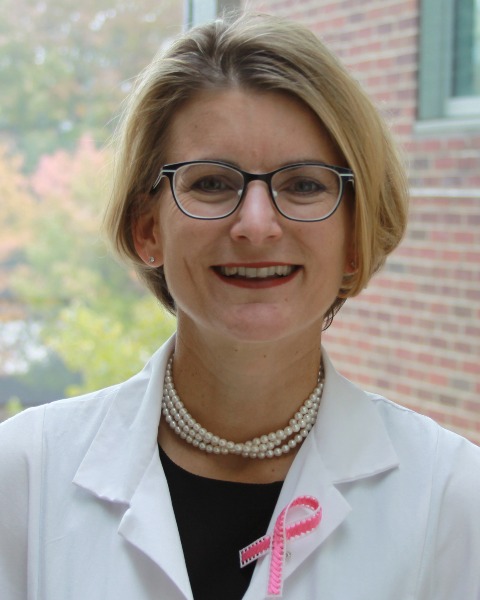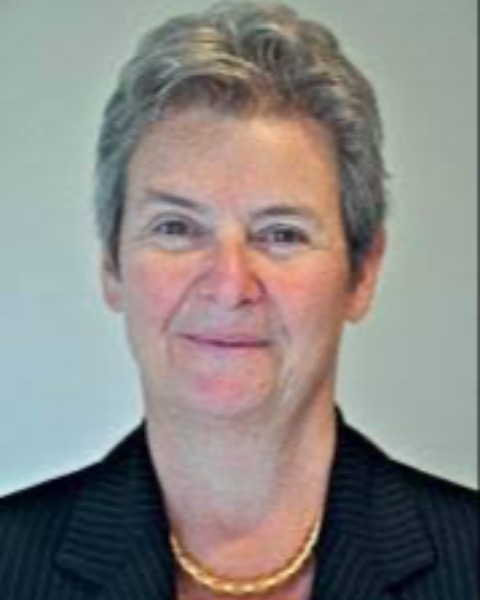A Decade Later: National Initiative to Reduce Antipsychotics: Research, Clinical, and Policy Discussion
1.00 CME / 1.00 CMD Management / 1.00 MOC
This session includes an interprofessional panel of experts who will share emergent results from a national research study that evaluated the impact of the CMS antipsychotic reduction initiative in nursing homes. The first presentation will include an overview of the research aims and select study findings. The second presentation will discuss results from a study that examined the relationship between Antipsychotic use and transitions of care in nursing home residents. The third presentation will share the perspective of a nursing home medical director on the findings from this work and clinical applications. Finally, there will be a moderated group discussion to address questions as well as the policy implications of the CMS antipsychotic reduction initiative to inform future work.
Presenters
 Sarah Holmes, PhD, MSW, is an Assistant Professor at the University of Maryland School of Nursing. Dr. Holmes has a PhD in gerontology from University of Maryland Baltimore; Master’s in social work from The Ohio State University; and Bachelor’s in psychology from Miami University. She completed a post-doctoral fellowship in health services research at University of Maryland School of Pharmacy and the Lamy Center on Drug Therapy and Aging. Prior to earning her PhD, she worked at the University of Kentucky Sanders-Brown Center on Aging, Alzheimer’s Disease Center where she was involved in clinical research related to the prevention and treatment of Alzheimer’s disease. Dr. Holmes’ research focuses on improving quality of life and quality of care outcomes for older adults in residential long-term care settings, including persons living with dementia.
Sarah Holmes, PhD, MSW, is an Assistant Professor at the University of Maryland School of Nursing. Dr. Holmes has a PhD in gerontology from University of Maryland Baltimore; Master’s in social work from The Ohio State University; and Bachelor’s in psychology from Miami University. She completed a post-doctoral fellowship in health services research at University of Maryland School of Pharmacy and the Lamy Center on Drug Therapy and Aging. Prior to earning her PhD, she worked at the University of Kentucky Sanders-Brown Center on Aging, Alzheimer’s Disease Center where she was involved in clinical research related to the prevention and treatment of Alzheimer’s disease. Dr. Holmes’ research focuses on improving quality of life and quality of care outcomes for older adults in residential long-term care settings, including persons living with dementia.
 Nicole Brandt, PharmD, has expanded available geriatric training opportunities, including the geriatrics/palliative care pathway, ASHP-accredited geriatrics residency, and two-year post-PharmD fellowship. She was named the 2019 recipient of the American Geriatrics Society’s (AGS) Dennis W. Jahnigen Memorial Award for her leadership in geriatrics education. She has worked on various interdisciplinary teams across numerous practice settings and is currently leading initiatives to integrate sustainable pharmacist-directed services to help older adults with multiple co-morbidities at the MedStar Center for Successful Aging. She co-led an initiative that led to the University of Maryland, Baltimore and University of Maryland, Baltimore County to become the first universities in the state of Maryland to receive Age-Friendly University distinction. She recently co-chaired a task force convened by the Peter Lamy Center on Drug Therapy and Aging at the University of Maryland School of Pharmacy with assistance from the US Deprescribing Research Network to develop an Implementation Guide for Post-Acute and Long-Term Care during the COVID-19 pandemic.
Nicole Brandt, PharmD, has expanded available geriatric training opportunities, including the geriatrics/palliative care pathway, ASHP-accredited geriatrics residency, and two-year post-PharmD fellowship. She was named the 2019 recipient of the American Geriatrics Society’s (AGS) Dennis W. Jahnigen Memorial Award for her leadership in geriatrics education. She has worked on various interdisciplinary teams across numerous practice settings and is currently leading initiatives to integrate sustainable pharmacist-directed services to help older adults with multiple co-morbidities at the MedStar Center for Successful Aging. She co-led an initiative that led to the University of Maryland, Baltimore and University of Maryland, Baltimore County to become the first universities in the state of Maryland to receive Age-Friendly University distinction. She recently co-chaired a task force convened by the Peter Lamy Center on Drug Therapy and Aging at the University of Maryland School of Pharmacy with assistance from the US Deprescribing Research Network to develop an Implementation Guide for Post-Acute and Long-Term Care during the COVID-19 pandemic.
 Susan Levy, MD, CMD, is a medical director of three facilities in Sussex County, DE. She has a long career in PALTC and is currently the AMDA Society for PALTC Foundation Chair and an AMDA Past-President. She has been a prior state coalition lead for the Partnership to Improve Dementia Care and has been working with the University of MD on their work regarding medication use and dementia care.
Susan Levy, MD, CMD, is a medical director of three facilities in Sussex County, DE. She has a long career in PALTC and is currently the AMDA Society for PALTC Foundation Chair and an AMDA Past-President. She has been a prior state coalition lead for the Partnership to Improve Dementia Care and has been working with the University of MD on their work regarding medication use and dementia care.
 Barbara Zarowitz, PharmD, MSW, is the Senior Advisor for the Peter Lamy Center on Drug Therapy and Aging at the University of Maryland. Previously, Dr. Zarowitz was Vice-President, Pharmacy Care Management at Henry Ford Health System; Vice-President and Chief Clinical Officer at Omnicare, Inc; Chief Clinical Officer, Long-term Care for CVS Health; and Adjunct Professor of Pharmacy Practice at the College of Pharmacy and Health Sciences, Wayne State University and the University of Michigan. She created clinical programs for Omnicare, Inc.- subsequently a CVS Health Company, and developed strategies and tactics to manage drug utilization, including disease management and formulary management to improve medication safety and optimize clinical outcomes. Omnicare provided pharmacy care for 1.4 million older adults living in long-term care facilities. She graduated from Fordham University Graduate School of Social Services with a Masters in Social Work in May 2021.
Barbara Zarowitz, PharmD, MSW, is the Senior Advisor for the Peter Lamy Center on Drug Therapy and Aging at the University of Maryland. Previously, Dr. Zarowitz was Vice-President, Pharmacy Care Management at Henry Ford Health System; Vice-President and Chief Clinical Officer at Omnicare, Inc; Chief Clinical Officer, Long-term Care for CVS Health; and Adjunct Professor of Pharmacy Practice at the College of Pharmacy and Health Sciences, Wayne State University and the University of Michigan. She created clinical programs for Omnicare, Inc.- subsequently a CVS Health Company, and developed strategies and tactics to manage drug utilization, including disease management and formulary management to improve medication safety and optimize clinical outcomes. Omnicare provided pharmacy care for 1.4 million older adults living in long-term care facilities. She graduated from Fordham University Graduate School of Social Services with a Masters in Social Work in May 2021.
Learning Objectives
- Describe emergent research findings related to the impact of the CMS antipsychotic reduction initiative in nursing homes.
- Describe emergent research findings related to the association of antipsychotic use and transitions of care in nursing home residents.
- Discuss practice-based strategies that will inform clinical care and/or medical direction related to the optimization of antipsychotic prescribing in nursing home residents.
Credit Information
Activity Created 3/2022
Credits Available Until 3/2025
Credit Statements:
CME: AMDA – The Society for Post-Acute and Long-Term Care Medicine designates this enduring material for a maximum of 1.0 AMA PRA Category 1 Credit(s)TM. Physicians should only claim credit commensurate with the extent of their participation in the activity.
AMDA – The Society for Post-Acute and Long-Term Care Medicine for Post-Acute and Long-Term Care Medicine is accredited by the Accreditation Council for Continuing Medical Education (ACCME) to provide continuing medical education for physicians.
CMD: This self-study activity has been pre-approved by the American Board of Post-Acute and Long-Term Care Medicine (ABPLM) for a total of 1.0 management hours toward certification or recertification as a Certified Medical Director (CMD) in post-acute and long-term care medicine. The CMD program is administered by the ABPLM. Each physician should claim only those hours of credit actually spent on the activity.
ABIM Maintenance of Certification (MOC): Successful completion of this CME activity, which includes participation in the evaluation component, enables the participant to earn up to 1.0 Medical Knowledge MOC points and patient safety credit in the American Board of Internal Medicine’s (ABIM) Maintenance of Certification (MOC) program.
Participants will earn MOC points equivalent to the amount of CME credits claimed for the activity. It is the CME activity provider’s responsibility to submit participant completion information to ACCME for the purpose of granting ABIM MOC credit.
Visit the Continuing Education page for information on if and how you can claim credit/hours for AMDA’s education.
Disclosure Information:
The Society requires the disclosure of all speaker/faculty/planner’s relevant financial relationships; presence of off-label use of a device or medication; and discussion of any experimental, new or evolving topic prior to each accredited education activity.
If the learner perceives any bias toward a commercial product or service, advocation of unscientific approaches to diagnosis or therapy, or recommendation, treatment, or manners of practicing healthcare that are determined to have risks or dangers that outweigh the benefits or are known to be ineffective in the treatment of patients please report this to the Society’s staff.
All relevant financial relationships have been identified, mitigated, and resolved.
- The following AMDA Education Committee members have financial relationships to report: Diane Sanders-Cepeda, DO, CMD — UHC E&I Retiree Solutions: Full-Time Employee; all others have no relationships with ineligible companies.
- The following speaker has financial relationships to report: Barbara J. Zarowitz, PharmD, MSW - Akebia: Consultant/Advisory Board; all others have no relationships with ineligible companies.
- AMDA staff have no relationships with ineligible companies.